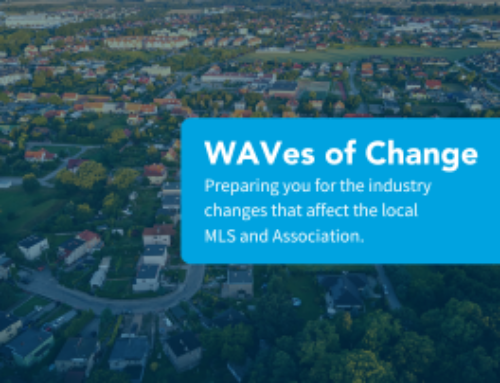 The phrase “slippery slope” is often used to describe a situation where a small initial action or decision leads to a chain of events that ultimately result in a significant, and often undesirable outcome.
The phrase “slippery slope” is often used to describe a situation where a small initial action or decision leads to a chain of events that ultimately result in a significant, and often undesirable outcome.
In the context of Multiple Listing Services (MLSs), it could imply that certain decisions or changes, even if seemingly minor, could set a precedent or trigger a series of consequences that are difficult to control or reverse, potentially impacting the industry in a negative way.
DOJ mandate to let everyone in
This is where the slippery slope concept comes into play. If the REALTOR® Association built the clubhouse, and it’s great, then why should everyone be allowed in? The Department of Justice (DOJ) uses arguments like antitrust, tying, and collusion to say that these clubhouses are so good – everyone needs to be admitted.
Antitrust laws are regulations designed to promote fair competition and prevent monopolies or other business practices that unfairly restrict trade, or harm consumers.
Tying is an illegal business practice where a company forces a customer to purchase a second product or service in order to obtain the first product or service. This practice is generally prohibited by antitrust laws as it can stifle competition and harm consumers.
Collusion is an illegal business practice where competitors secretly agree to work together to gain an unfair advantage in the marketplace. This can involve price-fixing, dividing up markets, or other anti-competitive behaviors. Collusion is prohibited by antitrust laws as it harms consumers and stifles competition.
Dividing up markets is illegal because it stifles competition. When competitors agree not to compete in certain areas (or for certain customers), it limits consumer choice and can lead to higher prices. This practice is considered a form of collusion, which is prohibited by antitrust laws.

Problem of Mandated Association Membership for MLS Participation/Subscription
In some MLSs, there’s a requirement in order to participate or subscribe to the MLS, individuals must also be members of a specific real estate association. This means that real estate agents or brokers would need to join and maintain membership in the REALTOR® Association in order to access and utilize the MLS’s services, such as listing properties or accessing market data.
Problem of Mandated Association Membership for Forms/Lockbox
In some regions, real estate agents are required to be members of the local REALTOR® Association to access and use standardized transaction forms and/or lockboxes. This means that agents would need to join the association to utilize these tools, which are often essential for conducting real estate transactions efficiently and securely.
If you consider these things from a historical perspective, they make total sense. The MLS was created by REALTOR® Associations on behalf of their broker and agent members. They constructed the concept, did the heavy lifting of creating a mutually beneficial structure, earned customers, and financed the entire thing with association dues. Everyone agreed to pay more to make it happen, and combined resources to make it happen. There is a heartfelt position by REALTORS® that it was built by them and for them.
Problem of Mandatory Office Membership Policy
In some MLSs, there’s a requirement that if one agent in a real estate office wants to join the MLS, then all agents in that office must also join. This is known as an “all-in” or “mandatory office membership” policy.
The Problem of Paper Brokers
The real estate industry tried to create policies that require “actively endeavoring.” The idea of “actively endeavoring” to perform real estate services refers to a requirement that real estate professionals, particularly brokers, demonstrate a genuine and ongoing effort to engage in the business of real estate. This could include activities such as actively listing and marketing properties, working with buyers, negotiating contracts, and providing other real estate related services. This requirement is often intended to prevent individuals from obtaining a real estate license solely for the purpose of accessing MLS services or other benefits without actually engaging in the profession. Although the name of Zillow was not used in the development of this policy, it was clearly written to exclude them from accessing MLS data. Today, Zillow is a paper broker who does not provide real estate related services (as described in the rule), but instead accesses the MLS IDX data feed in every market that I have evaluated.
Is Zillow’s (or any other paper broker’s) collection of a referral fee for an online lead considered a real estate service? My test for answering the question would be the disclosure and agreement with the consumer that is required for other real estate services. If there is not a disclosure of the fee, it’s hidden. If there is no consumer agreement to pay Zillow for services, then I do not see how it could be considered a licensed real estate service. To be clear, I only reference Zillow because they are the leading company that exercises this practice as a licensed real estate broker; but there are many others.
The Problem of Clear Cooperation
The MLS was founded upon the agreement that all participating brokers contribute all contracted listings to the MLS. Clear Cooperation was developed on top of that foundational rule to mandate that listings must be contributed within one day of the brokerage marketing the property publicly. Just like the active endeavoring rule, the names of Compass, Top Agent Network, or the PLS were never used in the context of creating the rule, but there was a clear effort to thwart efforts by brokers to sell their own listings without sharing them with every broker in the MLS. This policy makes sure that every broker and every consumer has access to every listed property within one day so homebuyers have equal access, but there is no requirement for FSBO listings to be contributed to the MLS (or commercial listings, or rental properties, or time shares.)
The Problem of Mandatory VOW Compliance
Every MLS in the nation signed an agreement coordinated by the NATIONAL ASSOCIATION OF REALTORS® and the Department of Justices in 2008 declaring that they provide VOW data feeds, yet many MLSs continue to deny brokers VOW access. The National Association of REALTORS® has been notified of the MLSs that are not compliant with VOW policy–as well as not compliant with the RESO standards, but neither is enforced by NAR.
 When Does an MLS Become a Monopoly?
When Does an MLS Become a Monopoly?
The legal text does not explicitly provide the legal definition of a monopoly. However, it indirectly references the concept in relation to antitrust laws, which aim to prevent monopolies. Based on this context, a monopoly can be generally understood as a situation where a single company or entity has exclusive control over a particular market or industry, allowing it to dictate prices and potentially harm consumers. Clearly, with the exception of certain markets like Atlanta, MLSs have exclusive control over the residential real estate market. In some markets like Louisiana, the brokers started Greater Southern MLS to buffer the anti-broker behavior of their MLS.
How does the MLS dictate prices?
How does the MLS potentially harm consumers?




